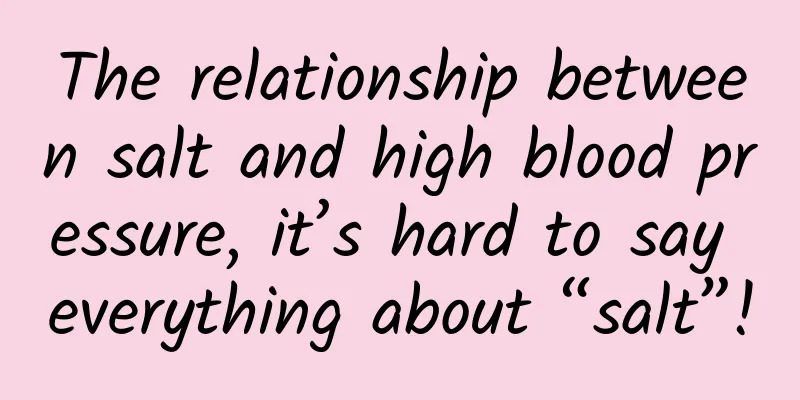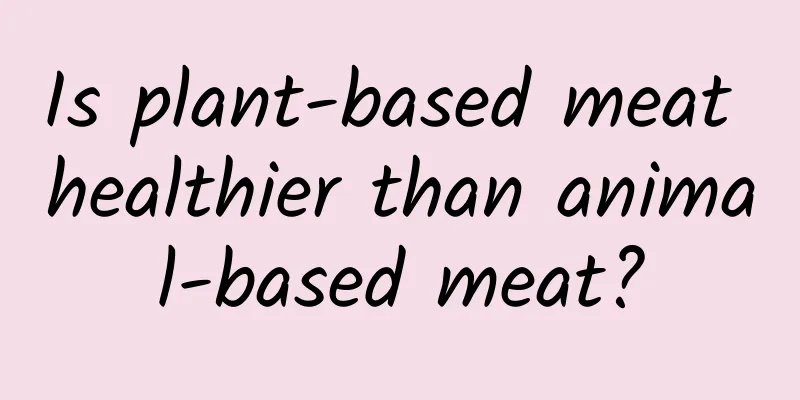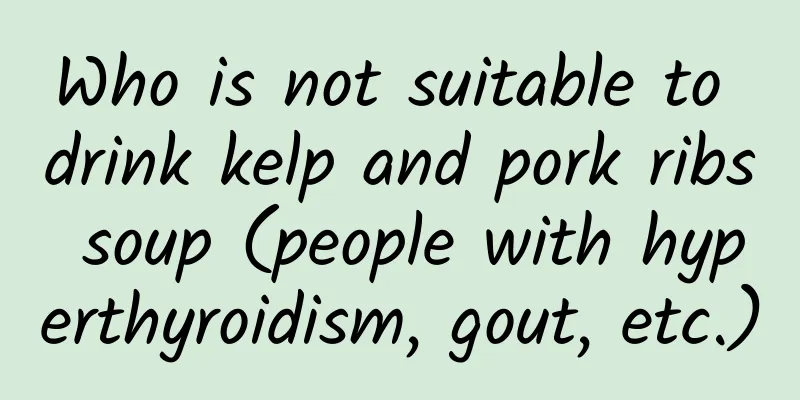The relationship between salt and high blood pressure, it’s hard to say everything about “salt”!

|
Mr. Li suffered from high blood pressure. The doctor laughed and said that Mr. Li's wife, Mrs. Zhang, was to blame. What was going on? It turned out that Mrs. Zhang had been responsible for cooking for more than 40 years. Mrs. Zhang was from Shandong and loved salty food. She always put salt in her dishes. Mrs. Zhang's dishes were full of flavor, but Mr. Li's blood pressure also increased. The doctor said that Mrs. Zhang's dishes were one of the important factors leading to Mr. Li's high blood pressure, because excessive salt intake is one of the important risk factors for high blood pressure. What is the relationship between salt and high blood pressure? The role of salt in the normal human body. Our normal human body is mainly composed of bones, muscles, blood and other tissue fluids. Salt-containing body fluids are the largest component of the body and exist in almost every organ of the body. They are the basis of human physiological activities, such as cell membrane electrophysiological activities and osmotic pressure maintenance. However, the salt content in the human body is relatively stable. Too high or too low a content may lead to physiological disorders and cause corresponding diseases. Does high salt intake really lead to high blood pressure? Before answering this question, let's first understand what factors are related to high blood pressure. The main causes of high blood pressure are genetic background, dietary habits, occupational and social psychological stress, obesity, smoking, aging and lack of physical activity. These factors influence each other and work together to eventually lead to the occurrence of high blood pressure. Among them, the intake of sodium salt in dietary habits plays an important role in the occurrence of high blood pressure. Bad sodium intake habits can subtly affect people's health over a long period of time. There is no doubt that consuming too much salt can lead to high blood pressure, because it has rigorous scientific research as its theoretical basis. Scientific research on the correlation between salt and blood pressure has been carried out for more than 100 years. One of the most famous studies is called the DASH experiment, and its results were published in a top international journal. The experiment randomly divided the population into three groups, and each group consumed different levels of salt. The results showed that the group with the least salt intake had the lowest blood pressure level, and it was also found that consuming 1 gram less salt per day can reduce blood pressure by 2 to 3 mmHg. This shows that without the use of any drugs, the blood pressure of many patients can be effectively controlled by controlling salt intake, which is undoubtedly the most economical and practical method. Why can salt intake lead to high blood pressure? 0 1The main component of salt is sodium chloride. Normal individuals take in sodium and water in a certain ratio. High sodium intake is accompanied by increased water intake. Therefore, high salt (high sodium) intake can cause water and sodium retention, leading to increased blood volume. With more blood in the blood vessels, the pressure on the blood vessel walls naturally increases. 02Increase in intracellular sodium ion levels can lead to cell edema, swelling of vascular smooth muscle cells, and narrowing of the vascular lumen. As the space becomes smaller, it becomes more crowded, the pressure is higher, and blood pressure rises accordingly. 03High salt intake can increase the sensitivity of blood vessels to vasoconstrictor substances. There are two mechanisms for this effect: first, high salt can lead to an increase in vasoconstrictor substances, such as catecholamines. Second, the receptors for vasoconstrictor substances increase. The combined effect of the two results in excessive vasoconstriction and increased blood pressure. 0 4 High salt intake can also increase the amount of intracellular sodium, thereby inhibiting the activity of sodium-potassium-ATPase and increasing the influx of extracellular calcium into the cell. At the same time, the increase in intracellular sodium causes the sodium ion gradient inside and outside the cell to disappear, and the sodium-calcium exchange is inhibited, which reduces the excretion of intracellular calcium. Calcium is an essential substance for vasoconstriction. The increase in intracellular calcium ion concentration causes vascular smooth muscle contraction, increases peripheral vascular resistance, and increases blood pressure. summary In summary, salt and hypertension are closely related. Whether from the perspective of preventing hypertension or treating hypertension, salt restriction is beneficial. For people without hypertension, salt restriction can prevent hypertension. For patients who already have hypertension, simple salt restriction may restore blood pressure to normal. For patients with moderate to severe hypertension, salt restriction can not only improve the efficacy of antihypertensive drugs, but also reduce the dosage of antihypertensive drugs, thereby greatly reducing the adverse reactions caused by the use of antihypertensive drugs. |
<<: Will eating soy milk and eggs together cause indigestion? Don’t drink this kind of soy milk!
Recommend
What are the methods to reduce breast size?
The winter season is about to pass and spring is ...
What are hops? Why are most beer bottles green?
The beer we usually drink is made from hops as a ...
What causes vaginal pain after childbirth and what to do?
Many mothers who have just given birth to a baby ...
Characteristics of female alkaline body
The human body is divided into acidic and alkalin...
Fast heart rate in the elderly increases the risk of dementia! Swedish study
A Swedish study of more than 2,000 older adults s...
Why do I feel nauseous and want to vomit during my period?
Key reminder: Many women find that they have head...
How about Lanessa body shaping clothes? Who is Lanessa body shaping clothes suitable for?
With the improvement of living standards, more an...
Eating these foods is the most effective for keeping pregnant
Pregnancy is a very critical period for every wom...
What are the benefits of eating loquats? How to store loquats for a longer time
Loquat is rich in various nutrients, so it can ef...
China Unicom: Wo Index Mobile Application APP Ranking in July 2018
::__IHACKLOG_REMOTE_IMAGE_AUTODOWN_BLOCK__::20 ...
Pregnant woman with recurrent low-grade fever at 14 weeks
Pregnancy is in the middle stage around 14 weeks....
How many times a day is considered frequent urination for women?
Some friends have noticed that they often want to...
What does the female luteal phase mean?
The female luteal phase refers to the day before ...
What happens if you take birth control pills during pregnancy
Women must take good care of their bodies during ...





![[Medical Q&A] Why do we feel discomfort in our ears during hyperbaric oxygen therapy?](/upload/images/67f0effa92f22.webp)



